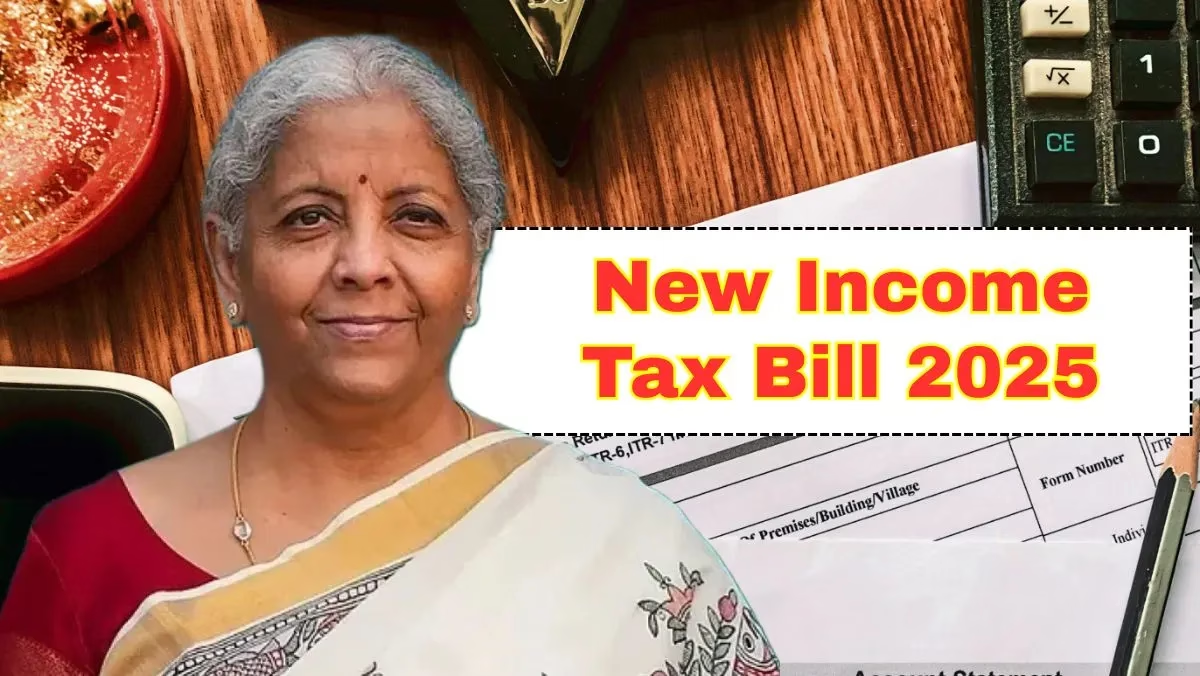New Income Tax Bill 2025: On Monday, August 11, Finance Minister Nirmala Sitharaman introduced the New Income Tax (No 2) Bill, 2025 in Parliament, aiming to overhaul and simplify the country’s taxation framework for the first time in over six decades. This isn’t just another small tweak to the existing system, we’re talking about a complete reimagining of how income tax works in India.
If you’ve been keeping an eye on the latest updates from Parliament, you’ll be excited to hear that the Lok Sabha passed the revised New Income Tax Bill 2025 today, Monday, August 11, 2025, at 4:55 PM IST. Earlier today, Finance Minister Nirmala Sitharaman presented this updated version, marking a big step forward after the government pulled back an earlier draft last Friday.
New Income Tax Bill 2025 Passed
The New Income Tax Bill 2025 is all about giving India’s tax system a fresh start. The current Income-Tax Act, 1961, has been around for over six decades, and it’s starting to feel outdated with its complex rules and language. This new legislation, first introduced on February 13, 2025, aims to modernize everything, think digital tools for tax collection, better ways to settle disputes, and a simpler structure that’s easier to navigate.
The government withdrew the original version last week to refine it based on feedback, and today’s passing shows they’ve listened to the suggestions. It’s a chance to make tax filing less of a headache for everyone, from individuals to big businesses!
What Led to the Withdrawal and Revision?
So, why did they pull the original bill? It all started when the Parliamentary Select Committee, led by BJP MP Baijayant Panda, reviewed the draft and came up with 285 recommendations. These suggestions, detailed in a hefty 4,575-page report submitted last month, pointed out areas needing improvement.
The government decided that keeping multiple versions floating around would cause confusion, so they scrapped the first attempt. Instead, they brought forward the Income-Tax (No. 2) Bill, 2025, which incorporates most of these ideas into a single, clear document. Finance Minister Sitharaman explained that this move ensures the law reflects the committee’s insights and stakeholder input more accurately.
UP Atal Bihari Vajpayee-Chevening Scholarship for Indian Students to Study in UK – Apply Now
Key Changes in the New Bill
Let’s break down some of the standout recommendations from the Select Committee that shaped this bill. With 31 members working together, they’ve suggested both small fixes and 32 major changes to make life easier for taxpayers. Here’s what stands out:
- Beneficial Owner Definition: They’ve proposed a new way to define a “beneficial owner,” allowing people to carry forward losses if they get share benefits directly or indirectly. This could help investors manage their finances better.
- Dividend Deductions: The committee wants to bring back the inter-corporate dividend deduction, which was missing earlier. They also suggest a standard 30% deduction after municipal taxes, plus extending pre-construction interest benefits to rented properties, great news for property owners.
- Easier Tax Compliance: To help individuals, they recommend “Nil” tax deduction certificates, flexibility to waive penalties for honest mistakes, and refunds for late tax returns if you’re a small taxpayer. These steps could save you from unnecessary stress.
- Clearer Definitions: They’ve asked for better clarity on “non-performing assets” (NPAs) to reduce long tax and banking disputes. Plus, they’ve defined “parent company” more precisely and set rules for non-profits and charitable trusts, ensuring anonymous donations don’t affect their tax breaks.
- A Fresh Start: The committee also suggests dropping all references to the old 1961 Act, aiming for a sleek, dispute-free tax system.
What the Finance Minister Sitharaman Said?
During the presentation, Sitharaman highlighted that the government has accepted “almost all” of the Select Committee’s recommendations. She emphasized that this bill isn’t just a replacement for the 1961 Act, it’s a complete rethink to make tax laws clearer and more effective.
The statement accompanying the bill notes corrections in drafting, better alignment of phrases, and adjustments to avoid confusion. This decision to withdraw and replace, she added, ensures a unified approach that stakeholders can trust. It’s a collaborative effort, and that’s why it feels like a big moment for India’s tax future.
How This Affects You?
So, what does this mean for you? If you’re an individual taxpayer, the simplified rules and new deductions could mean less paperwork and more money in your pocket. Digital taxation might make filing online smoother, while dispute resolution systems could speed up any issues you face. For businesses, the inter-corporate dividend change and NPA clarity could ease financial planning.
What Happens Next?
With the bill passed in the Lok Sabha today, the next stop is the Rajya Sabha, where it’ll need approval to become law. If all goes well, it could be enacted by the end of the 2025 monsoon session, possibly by September. After that, the government will set a date to implement it, likely early 2026, to give everyone time to adjust. The Finance Ministry will issue detailed guidelines, so keep an eye out for those.
Conclusion
This bill could transform how we handle taxes in India, making it fairer and more modern. With over 60 years of old laws behind us, this update reflects the country’s growth and the need for simplicity. Keep checking pib.gov.in or the Finance Ministry’s site for the latest. The helpline (1800-4250-0025) is there if you need assistance.
